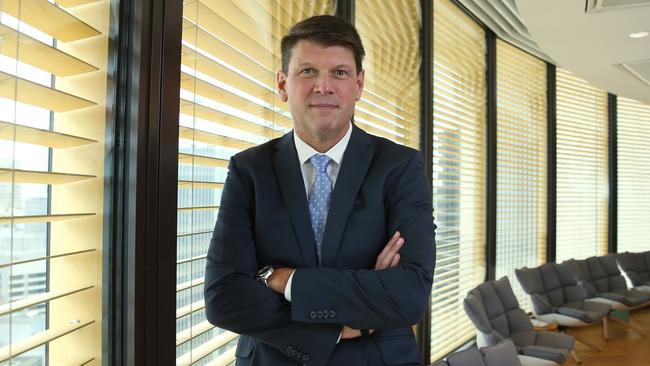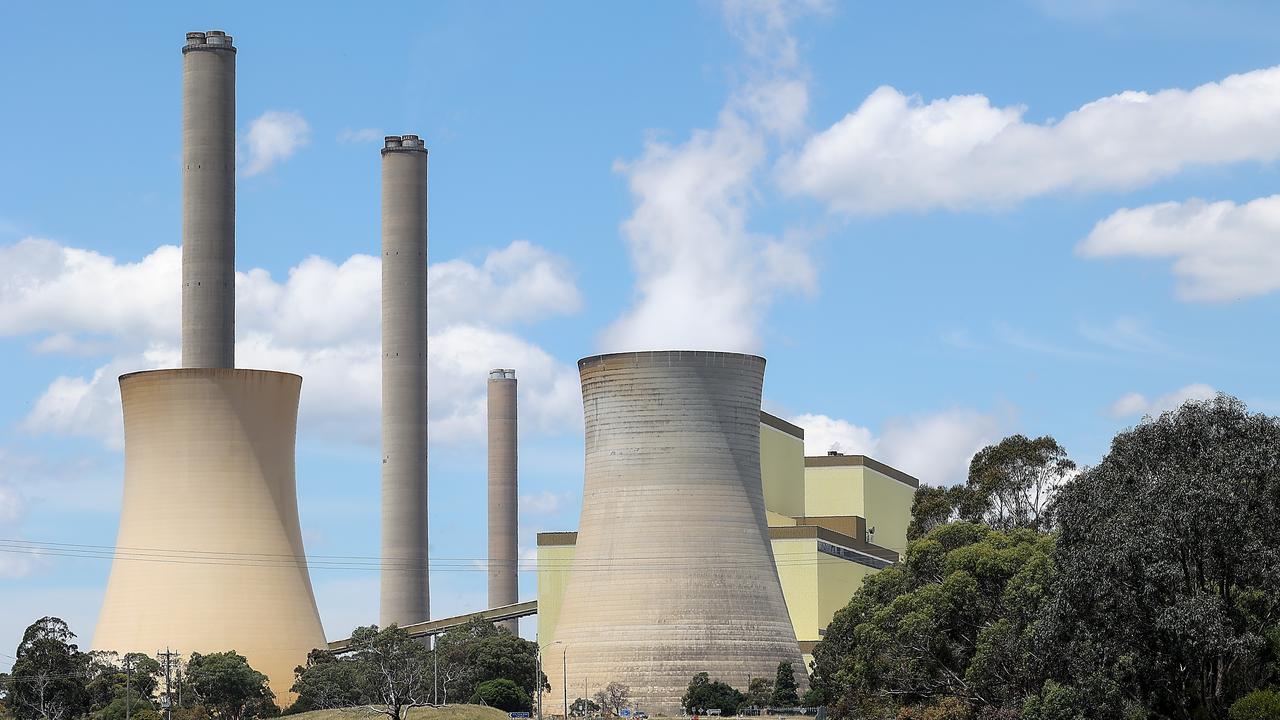AGL cops hefty first strike against executive pay
Proxy votes cast ahead of today’s shareholder meeting lobbed a strike against the energy group’s remuneration report.

AGL Energy has been hit by a massive vote against its executive pay structure, as chief executive Brett Redman warned of more pain to come for shareholders as the coronavirus hits the energy giant’s earnings.
AGL was hit with an embarrassingly big “first strike” against its remuneration report at its annual shareholder meeting on Wednesday, with 46.5 per cent of shares voted against the pay structure, and 30.4 per cent of shares voted against a performance rights issue to Mr Redman.
The vote came as Mr Brett Redman told shareholders today the company’s earnings faced a “severe headwind” as the broader economy struggled to recover from the impact of the coronavirus crisis.
AGL confirmed its earlier earnings guidance of underlying after-tax earnings of $560m to $660m for the current fiscal year, well below the $816m in underlying profit last financial year — itself a 22 per cent drop on the previous period.
Mr Redman said the expected year-on-year decline in earnings reflects the “accelerating impact” of the COVID-19 pandemic on pre-existing market issues for energy suppliers.
Mr Redman said the “headwinds” included the impact of higher supply costs in its wholesale gas sales as legacy supply contracts mature, as well as lower year-on-year gas prices, and the impact of sharply declining wholesale prices for both electricity and large-scale renewable energy certificates.
“In the early months of the 2021 financial year, economic and operating conditions have remained extremely challenging. We are seeing pressure from reduced customer volumes related to extended lockdowns and a warmer than usual winter,” he said.
“Looking beyond the 2021 financial year, wholesale electricity prices, the single biggest driver of AGL’s profit, are substantially down. Taking Victoria as an example, futures contracts are trading around $45 per megawatt hour for FY22 and FY23. That represents a fall from an average of about $75 over FY20.
“This is a severe headwind for AGL’s earnings at a time when the maturing of legacy fuel supply contracts and falls in wholesale gas and renewable energy certificate prices are also creating pressure.”
Mr Redman told shareholders the grim outlook promised to put pressure on earnings well beyond the current fiscal period, with current guidance partly propped up by the expectation AGL will receive a one-off $80m to $100m insurance payout in the period.
The difficult outlook added weight to massive backlash against AGL’s remuneration report, with chairman Graeme Hunt promising to head back to the drawing board to rethink the company’s executive pay structure.
Mr Hunt said concerns raised over the executive pay structure by influential proxy advisers and major shareholders had led to a significant vote against AGL’s remuneration report, and against the grant of long-term incentive rights to its chief executive.
“Given the concerns expressed this year, we will engage with shareholders over the coming year to fully understand your views and we will review our remuneration structure and consider opportunities to further align the structure with company performance and long-term shareholder value,” he said.
AGL released its new executive pay structure at the end of June, tying its ambitious carbon reduction goals to its long-term incentive plan as a means of encouraging executives to make good on the company’s plan to lead the transition to clean energy.
But the 33 per cent weighting given to the carbon reduction goals also drew the ire of proxy advisers. ISS criticised the AGL scheme as the offer of bonuses for executives merely performing their day job, saying emissions reductions alone “should not be worthy of significant bonuses”, particularly given AGL has already flagged the closure of high carbon emission plants such as Liddell.
Both ISS and CGI Glass Lewis are believed to have recommended a vote against the AGL remuneration report.
It is not the first time AGL shareholders have revolted against the remuneration report, but this year’s backlash dwarfs the last, in 2016, when 37 per cent of votes were cast against its executive pay structure.
AGL shares closed down 0.7 per cent, or 9c, on Wednesday at $13.61.




To join the conversation, please log in. Don't have an account? Register
Join the conversation, you are commenting as Logout